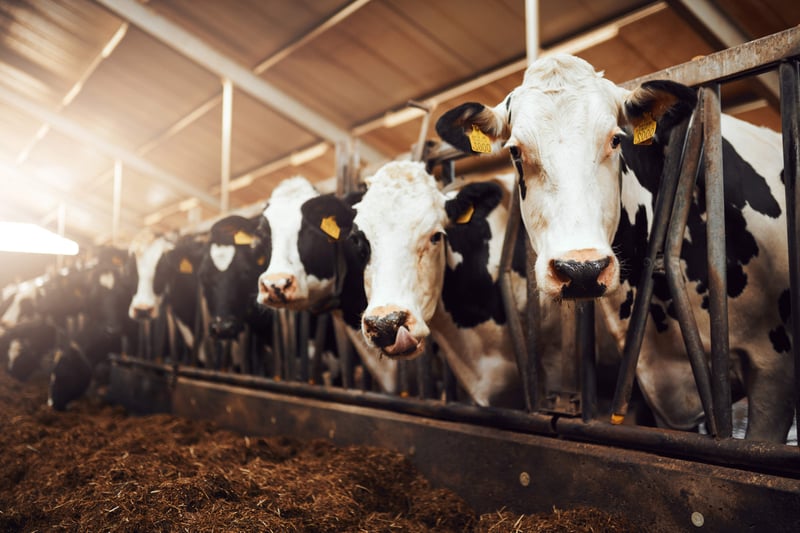
World’s Largest Meat Producer Gains Access to U.S. Capital Markets While Avoiding Millions in Taxes
Press release
For immediate release.
Contact: Jeanne Turkheimer
JeanneTurkheimer@worldanimalprotection.us
NATIONWIDE -- New research conducted exclusively on behalf of World Animal Protection, as well as a separate report by the Netherlands-based Centre for Research on Multinational Corporations (SOMO), reveals a calculated and aggressive tax avoidance scheme by Brazilian meat giant, JBS (B3 S.A.: JBS SA).
According to the SOMO report, between 2019-2022, JBS is estimated to have avoided paying between $221 and $442 million in corporate taxes to the U.S., Canada, Mexico, and other countries. The tax avoidance scheme involves a web of subsidiary companies registered in low-tax or no-tax jurisdictions, including Luxembourg and Malta.
While JBS has gone to inordinate lengths to pay as little tax as possible to the U.S. and other countries in which it operates, shifting greater financial burden onto the very consumers it is profiting from, the company also recently gained access to U.S. equity markets and investors.
On April 23, the U.S. Securities and Exchange Commission (SEC) approved JBS’s request to move its primary stock exchange listing from Brazil’s main B3 stock exchange to the New York Stock Exchange (NYSE).
As part of the listing proposal, JBS has created a new holding company, JBS N.V., which will be the entity listed on the NYSE. This company is registered in the Netherlands and ranked 7th in the Tax Justice Network’s Corporate Tax Haven Index.
The World Animal Protection and SOMO reports looked at JBS’s Luxembourg-based subsidiary companies, which own many of JBS’s most profitable operations in key markets like the U.S., Australia, Canada, Europe, and Mexico. As of 2022, only one of JBS’s 17 Luxembourg-based subsidiary companies reported having employees, while the other 16 reported none.
The creation of artificial structures, including intercompany loans and intercompany dividends, allows taxable profit to be shifted from the U.S. and other areas of operation to Luxembourg and other tax haven jurisdictions, where those profits are taxed at very low rates (if at all).
During the period 2019-2022, as researched in the reports by World Animal Protection and SOMO, these Luxembourg-based subsidiary companies recorded approximately $2.8 billion in pre-tax profits, largely consisting of the intercompany dividends and interest payments owed by JBS’s profitable operations in other countries. Because of the favorable tax treatment of this kind of income within Luxembourg’s tax regime, these same companies only paid net corporate income tax of $0.5 million for that same 2019-2022 period.
Meanwhile, during this period, almost $11 billion in intercompany dividends flowed through JBS’s group of Luxembourg subsidiary companies. At the end of 2022, JBS’s Luxembourg-based subsidiary companies had intercompany loan balances in excess of $21.7 billion.
As the world’s largest meat producer, JBS owns brands including Pilgrim’s Pride, Just Bare, and Swift, which are widely sold at U.S. grocery stores like Walmart, Safeway, H.E.B., Weis, Kroger, Albertson’s, Giant, and on Amazon. Currently, JBS has the capacity to slaughter a staggering 8 million lambs, 27 million cows, 53 million pigs, and 5 billion chickens per year. The company is infamous for its inhumane and sometimes illegal factory farming and deforestation practices, which led to a 50% increase in JBS’s emissions in recent years.
The tax avoidance scheme should be especially concerning to American consumers, as the U.S. market accounts for over half of JBS’s revenue.
The SEC approval for JBS to list on the NYSE came despite World Animal Protection and dozens of other organizations delaying the SEC’s decision by almost two years by exposing material gaps in the information the company provided to investors and forcing JBS to continually disclose the risks in its supply chain, including deforestation in biodiversity hotspots, animal suffering and zoonotic disease.
In the U.S., in the past year alone, JBS has been fined $8 million for child labor violations related to relying on migrant children to do dangerous work in their slaughterhouses, $100 million for conspiring with rivals to underpay American chicken farmers, and $83 million for conspiring with rivals to curb beef supply in the U.S. in order to artificially inflate prices. In 2020, the holding company of JBS’s controlling shareholder Batista family was fined $256 million by the SEC in relation to a conspiracy to violate the anti-bribery provisions of the Foreign Corrupt Practices Act.
Tim Vasudeva, Head of Private and Public Sector Finance at World Animal Protection, said:
“Instead of contributing its fair and reasonable share of tax to the countries where it is most profitable, multinationals like JBS use expensive lawyers and consultants to take advantage of tax loopholes and pass the buck to the everyday taxpayers who make them profitable in the first place. Beyond holding JBS accountable for its blatant tax avoidance, the U.S. government–and American consumers–also need to understand that JBS is a company that has been continually convicted and fined over many years for exploiting child labor, bribery, antitrust violations, and illegal deforestation.”
Vincent Kiezebrink, Senior Researcher at The Centre for Research on Multinationals (SOMO), said:
“JBS is exploiting the global financial system with surgical precision, using complex offshore structures to avoid taxes. It also poses a risk to investors, whom the company has not informed of its tax avoidance practices, and the potential costs should EU or US regulators take action. Allowing JBS access to US capital markets will only strengthen the monopolistic position it’s acquired there. It's time for financial institutions to stop looking the other way. Tax authorities should ensure JBS pays its fair share in tax.”
Notes to Editors
The tax avoidance scheme was first brought to light through formerly confidential documentation made public by an Australian Federal Court.
About SOMO
The Centre for Research on Multinational Corporations (SOMO), an Amsterdam-based research organisation, investigates multinationals. Independent, factual, and critical, SOMO has a clear goal—a fair and sustainable world in which public interests outweigh corporate interests. SOMO conducts action-oriented research to expose the impact of multinationals and unprecedented power and reveal the underlying structures underpinning them.